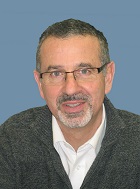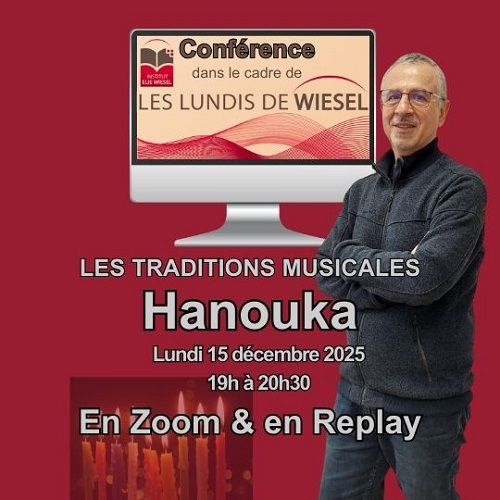
A radio program of the European Institute of Jewish Music hosted by Hervé Roten
MUSIQUES JUIVES D’HIER ET D’AUJOURD’HUI – JUNE 4, 2019, JUDAÏQUES FM (94.8), 21H00. Radio program in French
On the occasion of the screening of the movie Simha by Jérôme Blumberg, at the Mémorial de la Shoah, thursday 27th june 2019, Hervé Roten invites the ethnomusicologist Simha Arom, along with the producer Gabriel Chabanier.
The story of Simha (name that means « joy » in Hebrew) seems to come from a bad book. Born in 1930 in a Jewish family from Düsseldorf, Simha was forced to exile with his family after the Crystal Night (1938). After a period in Belgium, and then in France, his brother and his parents were deported to Auschwitz in 1942. They never came back. Simha, aged then 12, succeeded to cross the Pyrénées mountains and found refuge in Spain. In 1944, he boarded for Palestine. He studied the violin in a Kibbutz, but wounded on the arm during the Independance war in 1948, he gave up the violin to play the horn, the only instrument that can be played only with the left hand. After successful musical studies in Jerusalem, then in Paris (First Prize of horn at the Conservatoire National Supérieur de Musique de Paris in 1954), he became soloist on the horn in the Symphonic Orchestra of Jerusalem in 1957.
In 1962, the President of Central African Republic, David Dacko, while visiting Israel, heard a brassband, formed by young people, that he enjoyed greatly. He asked the State of Israel for one musician to create an identical orchestra in his own country. Simha was volunteer and left for one year.
When he arrived there, fascinated by the traditional Central African music, he convinced the President Dacko the need of recording the country’s music. He created, in Bangui, with his friend Geneviève Dournon, a museum of Popular Arts and Traditions : the Boganda Museum.
A few years later, Simha was hired at the CNRS (French National Centre for Scientific Research) and became one of the best known ethnomusicologists. His recordings and analysis of music from the pygmies travelled all over the world. Contemporary musicians such as Steve Reich, Luciano Berio, György Ligeti or Herbie Hancock and Madonna found inspiration in the polyphonies he made known.
In 1986, after the massive arrival of Ethiopian Jews in Israel, Simha started to gather around him a staff of French Israeli researchers to collect the music of these African Jews before it got lost. Between 1986 and 1989, hundreds of hours were recorded among the main holders of the tradition. These recordings, accompanied by a rich documentation, were released in 2018 in a boxset called The Liturgy of Beta Israel.
During his long and tumultuous life, Simha Arom never lost his sense of humor. And it is with joy (Simha) and good mood that this exceptional ethnomusicologist will tell us on Judaïques FM his adventures. And all of it accompanied with music of course !
- Watch an excerpt of the movie Simha
- Read the biography of Simha Arom
- Listen to excepts and purchase the boxset The Liturgy of Beta Israel
- Listen to the radio program by Olivier Tourny about Ethiopian liturgical chants
- Read the feature article about the music of Ethiopian Jews

Ethnomusicologist, he quickly developed an interest in the safeguard and digitization of archives, subjects he taught for several years in Reims and Marne-La-Vallée universities.
Author of many articles, books and recordings related to Jewish music, producer of radio programs, Hervé Roten is recognized today as one of the best specialists of Jewish music in the world.




